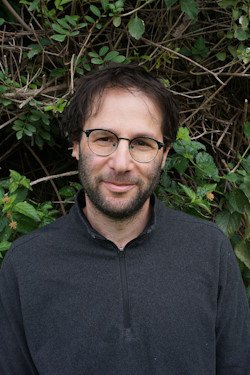Schraga Schwartz
2024 Israel Award Winner — Faculty

Current Position:
Associate Professor
Institution:
Weizmann Institute of Science
Discipline:
Molecular & Cellular Biology

Current Position:
Associate Professor
Institution:
Weizmann Institute of Science
Discipline:
Molecular & Cellular Biology
Recognized for: Groundbreaking work mapping and quantifying RNA modifications through the development of novel RNA analytical methods using a combination of computational, chemical and molecular biological approaches. The work of Schraga Schwartz, PhD, advances our understanding of critical regulatory mechanisms in our cells and leads to crucial implications on our understanding and treatment of physiological and pathological responses.
Areas of Research Interest and Expertise:
RNA biology, RNA modifications, post-transcriptional regulation, molecular genetics, RNA therapeutics
Previous Positions:
BSc in Medicine, Tel Aviv University
PhD, Tel Aviv University (Advisor: Gil Ast)
Postdoctoral Fellow, Weizmann Institute of Science (Advisor: Rotem Sorek)
Postdoctoral Fellow, Broad Institute of Harvard & MIT, USA (Advisors: Aviv Regev and Eric Lander)
Visiting Scientist, Genentech, Inc.
Research Summary:
Ribonucleic acid (RNA) is a molecule present in all living organisms and plays a variety of roles in the cell, from protein production to regulation of genetic activity. There are over 150 types of RNA modifications in which the chemical composition of RNA molecules changes, altering its function and, subsequently, impacting physiological and pathological responses. Thus, detecting RNA modifications and understanding how, why and when cells choose to use RNA modifications is critical for understanding the biology of living organisms and the development of RNA-based medicine.
Schraga Schwartz, PhD, has taken a sophisticated, multimodal strategy to pioneer the development of approaches for genome-wide detection, quantification, functional interrogation and mechanistic dissection of numerous RNA modifications across diverse systems. By combining chemical, molecular biology and computational approaches, his lab was able to develop the first approaches for detecting distinct types of RNA modifications. These maps served as critical starting points for dissecting the roles played by these modifications in diverse biological systems. For example, he and his team produced the first detailed maps of RNA acetylation, which paved the path to understanding how this modification was employed by cells to enhance the stability of the RNA. Work by Professor Schwartz and his lab also elucidated the principles governing the formation of different modifications, with recent work uncovering how m6A, the most widespread modification on human mRNA, is deposited and how this in turn directs RNA decay. Professor Schwartz’s work not only advances our understanding of a set of significant regulatory mechanisms in our cells, but it also provides insight on human genetic pathologies and paves the way for making use of RNA modifications as therapeutic modalities and targets.
“I am deeply grateful for the recognition of me and of the scientific pursuits in my lab through the Blavatnik Awards. This vote of confidence in our work is galvanizing and makes us all the more motivated to pursue our research in RNA biology”
Key Publications:
Other Honors:
| 2020 | RNA Society Early-Career Research Award |
| 2020 | Krill Prize for Excellence in Scientific Research (Wolf Foundation) |
| 2017 | EMBO Young Investigator Programme |
| 2016 | Alon Fellowship for Outstanding Young Faculty |
| 2015 | RNA Society Scaringe/Post-doctoral Award |
In the Media:
Weizmann Institute of Science – When the Heat Is On – Turn up the AC
Weizmann Institute of Science – Cracking the Code of a Natural RNA Editor
Weizmann Institute of Science – Revising the Genetic Message after It Is Sent